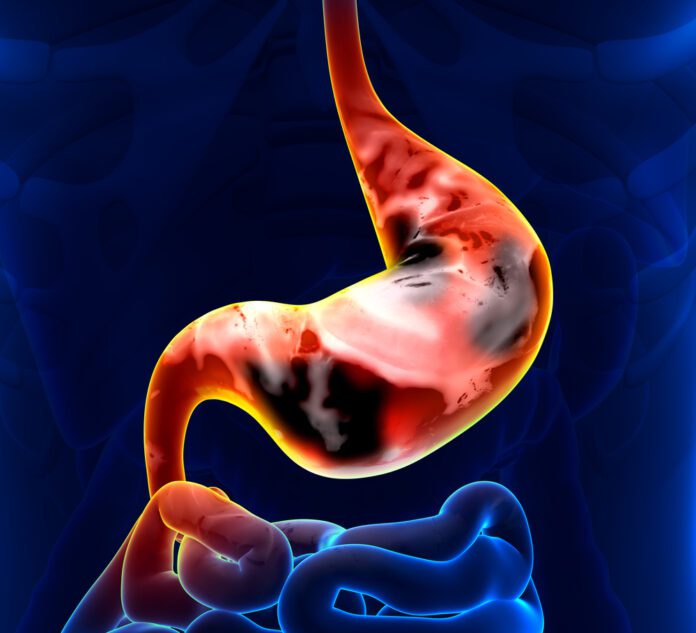Overview Of Gastric Carcinoma
Gastric carcinoma is synonymous with stomach cancer. Stomach cancer is cancer that starts in the stomach.
Commonly Associated With
Cancer – stomach; Gastric cancer; Gastric carcinoma; Adenocarcinoma of the stomach
Causes Of Gastric Carcinoma
Several types of cancer can occur in the stomach. The most common type is called adenocarcinoma. It starts from one of the cell types found in the lining of the stomach.
Adenocarcinoma is a common cancer of the digestive tract. It is not very common in the United States. It is diagnosed much more often in people in eastern Asia, parts of South America, and eastern and central Europe. It occurs most often in men over age 40.
The number of people in the United States who develop this cancer has decreased over the years. Experts think this decrease may be in part because people are eating less salted, cured, and smoked foods.
You are more likely to be diagnosed with gastric cancer if you:
- Have a diet low in fruits and vegetables
- Have a family history of gastric cancer
- Have an infection of the stomach by a bacteria called Helicobacter pylori (H pylori)
- Had a polyp (abnormal growth) larger than 2 centimeters in your stomach
- Have inflammation and swelling of the stomach for a long time (chronic atrophic gastritis)
- Have pernicious anemia (low number of red blood cells from intestines not properly absorbing vitamin B12)
- Smoke
Symptoms Of Gastric Carcinoma
Symptoms of stomach cancer may include any of the following:
- Abdominal fullness or pain, which may occur after a small meal
- Dark stools
- Difficulty swallowing, which becomes worse over time
- Excessive belching
- General decline in health
- Loss of appetite
- Nausea
- Vomiting blood
- Weakness or fatigue
- Weight loss
Exams & Tests
Diagnosis is often delayed because symptoms may not occur in the early stages of the disease. And many of the symptoms do not specifically point to stomach cancer. So, people often self-treat symptoms that gastric cancer has in common with other, less serious, disorders (bloating, gas, heartburn, and fullness).
Tests that can help diagnose gastric cancer include:
- Complete blood count (CBC) to check for anemia.
- Esophagogastroduodenoscopy (EGD) with biopsy to examine the stomach tissue. EGD involves putting a tiny camera down the esophagus (food tube) to look at the inside of the stomach.
- Stool test to check for blood in the stools.
Treatment Of Gastric Carcinoma
Surgery to remove the stomach (gastrectomy) is the standard treatment that can cure adenocarcinoma of the stomach. Radiation therapy and chemotherapy may help. Chemotherapy and radiation therapy after surgery may improve the chance of a cure.
For people who cannot have surgery, chemotherapy or radiation may improve symptoms and may prolong survival, but may not cure cancer. For some people, a surgical bypass procedure may relieve symptoms.



